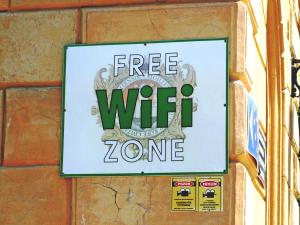Fair access to street furniture urged for 5G coverage
 Telecommunications mogul BT (EE) has urged the government to “end exclusive concessions agreements” on street furniture owned by UK city councils which act as barriers to the deployment of 4G and 5G mobile infrastructure.
Telecommunications mogul BT (EE) has urged the government to “end exclusive concessions agreements” on street furniture owned by UK city councils which act as barriers to the deployment of 4G and 5G mobile infrastructure.
There are presently nine cities in the UK with exclusive concession agreements: Brighton, Cardiff, Carlisle, Glasgow, Gloucester, Leicester, Newcastle/Gateshead, Nottingham and Plymouth.
By only granting certain companies the right to build mobile and WiFi technology in public furniture (such as in CCTV columns and lampposts), BT has argued that it limits the efforts of all operators in their capacity to extend 5G coverage across British cities and towns.
As a result of this, BT is aiming to hold a workshop in Birmingham to propose an Open Access Model to local authorities and mobile operators to encourage the speedy and efficient rollout of 4G and 5G technology by “promoting equivalent access and lowering the cost of investment”.
BT’s director of network strategy, Paul Ceely, said: “While the concessions model makes sense in the early 2010’s when it first came into common use, the market and regulatory landscape have changed and it’s become clear that exclusivity agreements act as a barrier to further 4G and 5G investments. Government initiatives such as the DCMS Barrier Busting taskforce are showing the way, but we believe that industry needs to act. We are leading the way by handing back exclusivity in nine key areas.
“The UK needs an alternative approach which sees industry and local authorities working together to share these street sites in an open and collaborative way. This will create the right environment for long-term investment and innovation in future mobile networks. We believe Open Access will be critical in ensuring the UK has the best mobile infrastructure in place to maintain its position as one of the world’s leading digital economies.”
It remains to be seen how easy or difficult it is to break existing contracts to ensure the smooth rollout of 5G networks, and if the Open Access Model would work at all due to issues pertaining to space and potential clashes in coverage.







